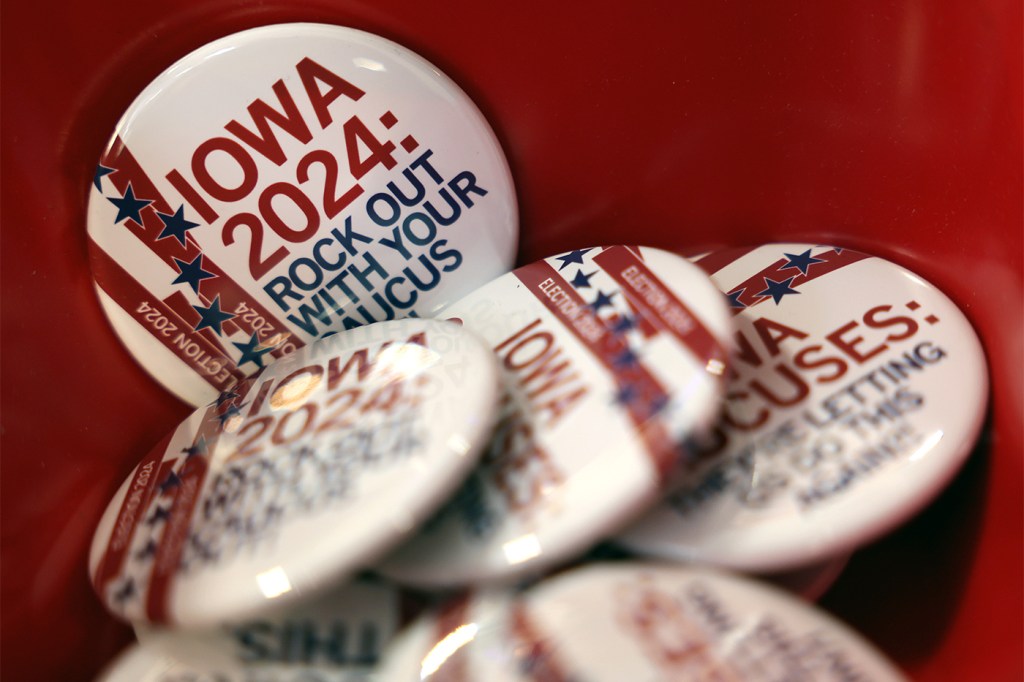Have the Iowa caucuses and New Hampshire primary outlived their usefulness?
Iowa and New Hampshire voters have traditionally helped to determine the Democratic and Republican presidential nominees, but reforms to the election calendar are long overdue, one expert says. Another says change is difficult.

The Iowa caucuses on Monday and the New Hampshire primary a week later are rapidly losing their relevance because of shifting demographics and historically poor predictive results, two Northeastern experts say.
By participating in the two election kick off events, Iowa and New Hampshire voters have traditionally helped provide an early picture of which Democratic and Republican nominees are performing well. But reforms to the election calendar are long overdue, one expert says. Another says change is difficult.
“People who care about democracy have wanted to revise this system for decades,” says Jeremy R. Paul, a professor of law and former dean of the Northeastern University School of Law. “Because the system as it is now has been terrible for the fact that two small, largely white states play an outsized role in selecting presidential nominees.”
The Iowa caucus is a statewide event, where registered voters gather at meeting sites to discuss and vote for their preferred candidates. Caucuses differ from primaries in that voters don’t actually cast a formal ballot — rather, their votes are cast and tallied privately by party representatives.
Historically, neither the Iowa caucuses nor the New Hampshire primary has been very predictive. You’d have to go all the way back to George W. Bush in 2000 to find the last non-incumbent Republican candidate who won the presidency after winning Iowa.
Editor’s Picks
Since the inception of the modern primary system in the early 1970s, there were eight presidential candidates who won in Iowa but ultimately failed to secure their party’s nomination, according to ABC. There were 16 occasions wherein the winner in Iowa failed to become president.
In 2020, then-candidate Joe Biden placed fourth in Iowa and fifth in New Hampshire before going on to secure his party’s nomination.
In recent years, the Iowa and New Hampshire nominating contests have been a source of seemingly endless consternation for both parties — so much so that the Democrats revamped their own calendar, putting South Carolina ahead of the two red states in a move that upset many there.
“In the long run, how long the current system is going to hold up is anyone’s guess,” Paul says.
With Donald Trump leading the Republican race, the Iowa caucuses and New Hampshire primary carry more significance for the second- and third-place candidates, who need strong finishes there to continue to make a case for themselves, Paul says.
What alternatives to the current caucus and primary calendar (and process) have been proposed? One alternative that has been championed by the National Association of Secretaries of State is a regional or rotating primary system, where groups of states would vote together to project a more demographically representative picture of presidential support.
“It would be much better if we divided the country into regions, in whatever way makes sense, then we would alternate the sequence each cycle,” Paul says.
Costas Panagopoulos, head of Northeastern’s political science department, says that one of the benefits of the current sequential primary system is that it “lets learning happen.” The states that vote after January get information from the early voting states that voters can use to assess the performances of particular candidates.
But Panagopoulos, who has conducted research into the drawbacks of caucuses, admits that leading the presidential election process with states like Iowa and New Hampshire may skew expectations.
“I think there are good reasons to be concerned about the demographic compositions of the early voting states, in part because their populations may not reflect the broader populations in the country,” he says.
Far from the perfect situation, Panagopoulos says the challenge to reforming the system is one of coordination.
“Part of the complication is that these decisions happen at the state level, and it’s very difficult for the national parties to coordinate on a national calendar when state parties may or may not be willing to agree to certain changes or reforms,” he says.
“There is some evidence that the influence of places like Iowa and New Hampshire could be waning, and that could be due to the nature of their populations,” Panagopoulos adds, “but there is stronger evidence that what happens in the first primary in the south [South Carolina] … might be more predictive.”
Ultimately, there are many different ways to organize the country’s presidential nominating system, the experts say; but the incentives need to align across the board.
“States like New Hampshire have an enormous incentive in keeping things the way they are, and there is little incentive from anybody else to make change,” Paul says.











